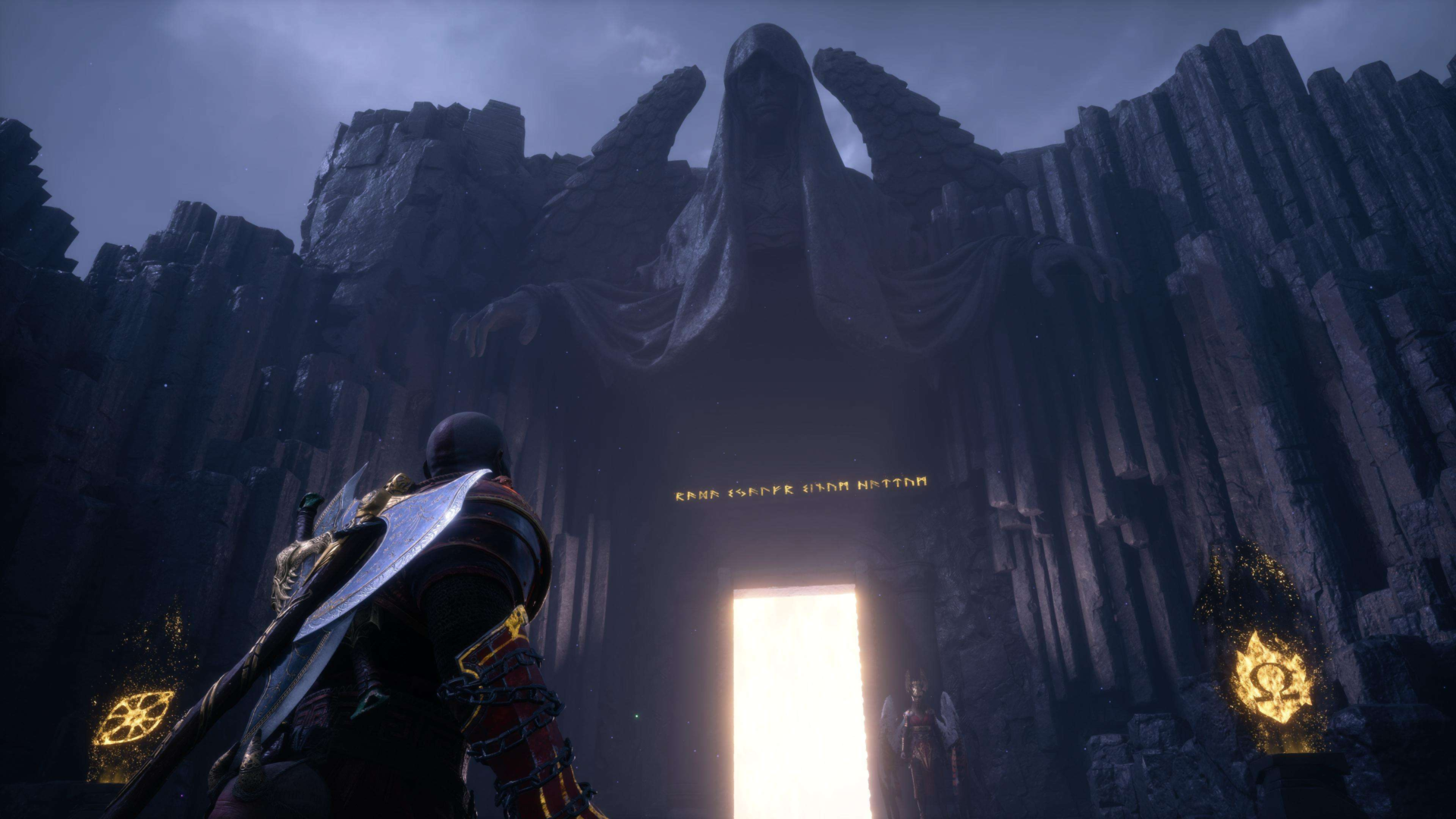
There is a therapeutic effect to going through rituals. Speaking purely mentally, we find comfort in the familiar and day-to-day. Going through our routines can help us process the larger arcs of our life. Centuries ago, members of religious orders used to walk labyrinths on the ground while in prayer, often praying the rosary they’ve prayed hundreds of times before. It’s always the same circuit, the same prayers, but it can be experienced differently each time. The progress being made is real, even if it looks as if nothing has changed from an external point of view.
I hope it’s not too glib of a comparison when I say roguelikes can have a similar effect. The structure is very similar – you go through the same paces and start out with the same tools, but the gifts given during this meditative experience vary each time. Grace builds upon grace, and you reach the end of your journey emboldened – only to begin the process anew. The free expansion to God of War: Ragnarök, Valhalla has Kratos go through a process much like this. Set after the ending of Ragnarök, there are guaranteed spoilers for the main game in this review. If you’ve yet to play but are unsure, first check out SpicyFoodHiccup’s review, and then play the game for yourself, in that order! I consider it to be one of the best stories in gaming, and Spicy’s review does it justice.

Valhalla opens on an empty throne. Having survived Ragnarök and saved the realms from utter destruction, Kratos has been asked by Freya to help rebuild. There’s a catch: Freya specifically asks if Kratos will take up the mantle as the new god of war. With most of the previous hierarchy destroyed, there are quite a few spots to fill. Kratos is uncertain. Soon after, an invitation is staked to his door. Intrigued by the invitation, and perhaps wanting to put things out of his mind, he seeks out his mysterious addressor. The instructions lead him to Valhalla, the mythological resting place of the honorably slain.
Like the rest of God of War, Santa Monica has its own spin on Valhalla. Here is a place where warriors can run the gauntlet, over and over again, as many times as they need so as to process what lies underneath. Were it not for the guidance of the one who invited you, this would seem like a senseless cycle of violence. But thanks to your mysterious benefactor, these sessions are more like guided meditations. It’s an approach that ironically disarms Kratos, letting him piece together what he needs to understand in order to move forward.
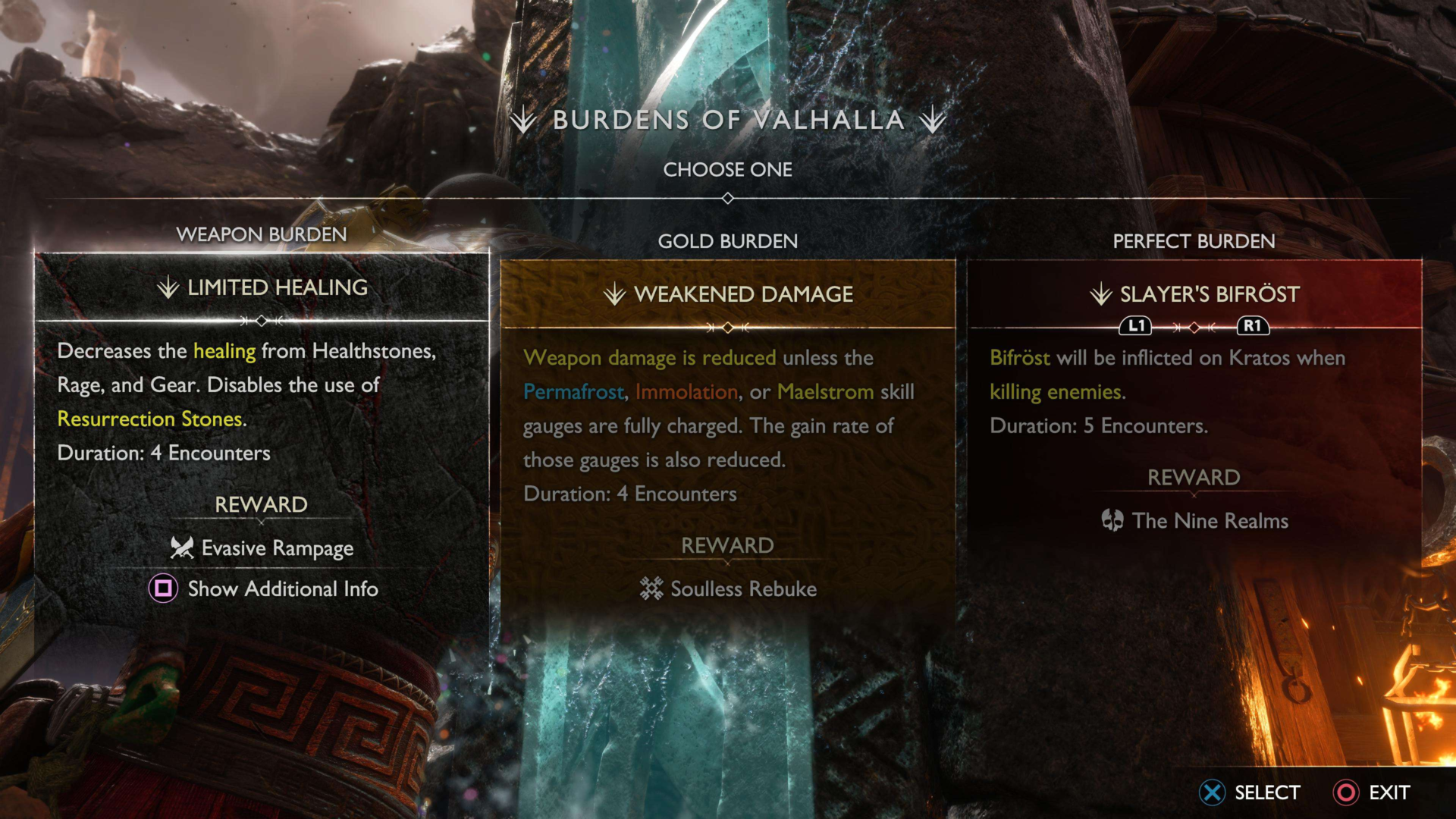
The gameplay shifts to the roguelite genre rather deftly. It helps that this is a DLC – at this point you’re familiar with the controls and concepts of the game and will be able to handle newly introduced mechanics easily. For those unfamiliar with roguelites, the premise is that there is no permanent death. You start underpowered, with your stats deflated and your armor gone. As you complete encounters, you gain your choice of power-ups, each building upon the last. But these gains are only for this run of the gauntlet – if you die (or ultimately succeed), you are sent back to the start to try again. Certain currencies remain after death, allowing you to purchase permanent upgrades, so progress is always possible.
Valhalla pulls it off. Failure can be more frustrating in this genre due to having to start all over again. We don’t want our runs to end because of a poorly timed dodge or an attack that too late we saw coming. The consolation roguelites have come up with are the external permanent upgrades. But if this isn’t well done, it doesn’t feel like you’re failing forward – it just feels like failing. Thankfully, that isn’t the case with Valhalla. I played on the Show Me Courage difficulty (that’s esoteric-speak for “Hard”) and I felt it was a good challenge that didn’t overstay its welcome. I got stuck on one boss for four tries – that was as bad as it got, which is not bad at all.
The story progresses even when you don’t. Like in the main game, there is plenty of minor dialogue outside of cutscenes, so don’t be hasty getting from room to room. It’s great development you won’t want to miss. Thankfully, the incredible main story is unmissable. The themes of hope, forgiveness, and atonement pervade this expansion. It is a worthy epilogue to the entire God of War series.
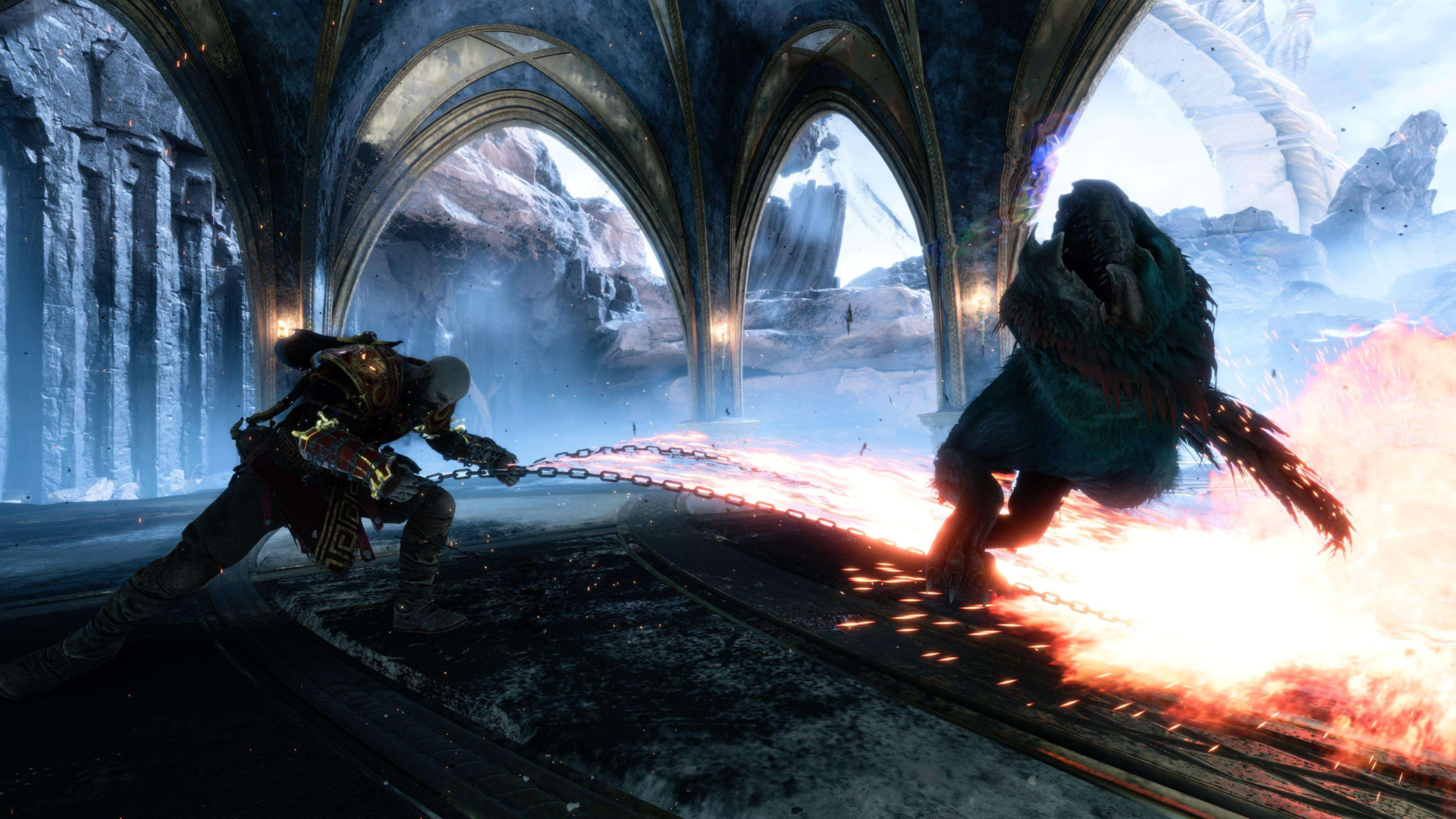
I won’t spoil any plot points for the DLC, save one: there is a picture which reveals a new location in-game. I will be discussing thematic spoilers, but before I get into that, let’s give the morality / parental warnings for all those ready to click out of the article.
MORALITY / PARENTAL WARNINGS
- As Brok is not in the DLC, the coarse language is greatly reduced. It’s still there, but it’s much less colorful.
- In a game titled God of War, I’m sure you expect detailed depictions of violence. There is violence and quick moments of gore. As Spicy said in his review, none of them rise to the level of Mortal Kombat, but that doesn’t mean certain executions aren’t excessive. As the enemies are more fantastical, it lessens the impact.
- In the base game there are no depictions of nudity; however, in an area you unlock late in the DLC, there are statues which suggest nudity. It’s out of the way but worth mentioning.
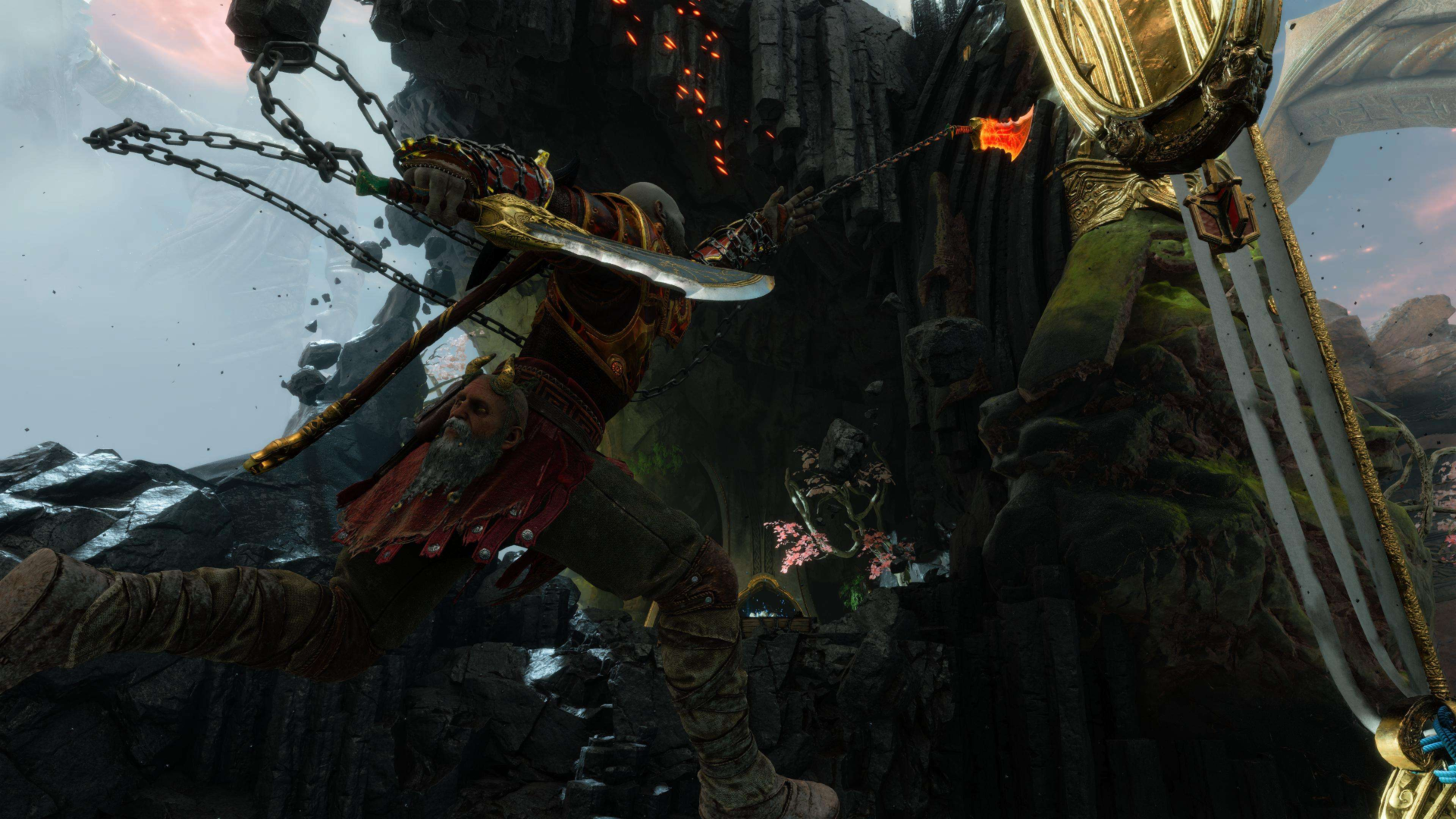
Back in the day, God of War was held up with Grand Theft Auto as an example of vices in video games corrupting the youth. Kratos’ cruelty in the Greek games is casual and unflinching. Civilians in the way of the critical path have their heads bashed in. There’s an infamous boat captain who has the keys Kratos needs to advance – Kratos saves this captain from a hydra, only to steal his keys and throw him back in the hydra’s mouth. There are many, many more examples, and at the end of that series Kratos is confronted with the consequences of all the things he’s chosen. His land is in ruins, the gods and titans are all dead, and there is no coming back for his slain family. Overwhelmed, Kratos attempts to kill himself, but does not succeed. We see a trail of blood leading away from Greece, and 8 years later (for us) we see where he went – Midgard.
Since the soft reboot in 2018, we’ve seen Kratos reckon with aspects of himself, but this was always done through the lens of his role as a father. He had yet to reckon with his past until this DLC. With Atreus gone on his own adventure, Kratos is alone with his thoughts. When Freya asks him to be a god to her people and help rebuild, Kratos cannot help but hesitate – he hasn’t held the role in centuries, and he has NEVER held the role responsibly. He fears power will corrupt him once more, and he will devolve back into that bloodthirsty man. Yet everywhere Kratos goes, this empty throne beckons to him.
Kratos searching for his answer to Freya brought to mind Jesus’ radically different view of leadership. James and John had just asked Jesus if they could rule at his left and right hand, in positions of power and authority. Jesus rebukes them, and flips the dynamic of power from how the world would define it.
And Jesus called them to him and said to them, “You know that those who are supposed to rule over the Gentiles lord it over them, and their great men exercise authority over them. But it shall not be so among you; but whoever would be great among you must be your servant, and whoever would be first among you must be slave of all. For the Son of man also came not to be served but to serve, and to give his life as a ransom for many.
Mark 10:42-45, RSVCE
Inscribed above Valhalla’s gates is the phrase “Master thyself.” The first step to self-mastery is self-knowledge. After all, it would be a fool’s endeavor to try and master something you know nothing about. Kratos’ journey to self-mastery is divided into 3 chapters in Valhalla: Acceptance, Vigilance, and Benevolence. Asides from the psychological association of the first phrase, I am reminded of the hallmarks of contrition: Recognition of wrong done, a rejection of that life, and a desire to change from evil to good.
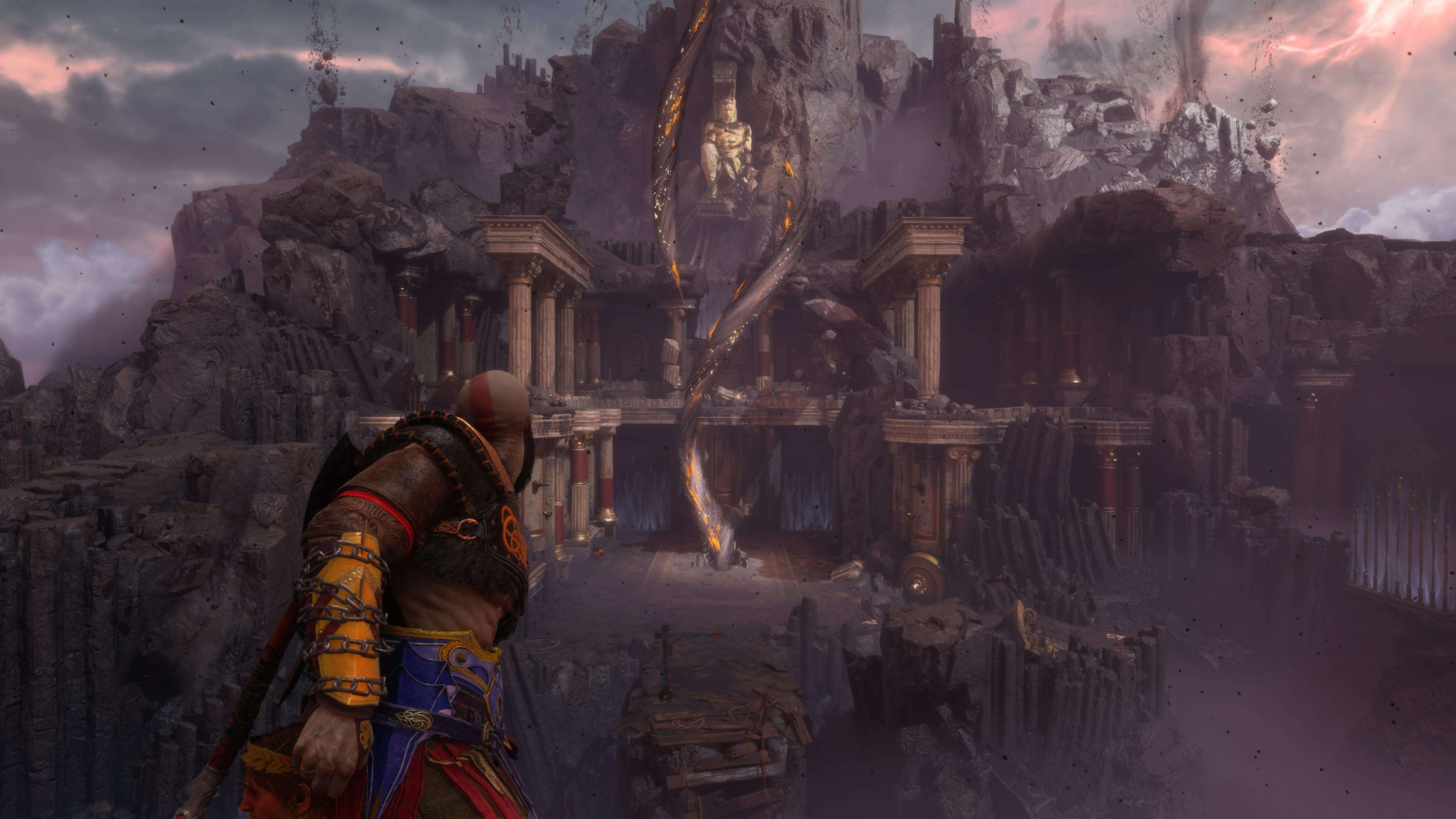
To atone for our sins, first we must know and acknowledge them. This might be the hardest step to contrition in the short run. I strive to live a holy life, but I don’t always want to acknowledge my failings. Ultimately this is the pull of pride: we don’t want to acknowledge the pain we’ve caused to ourselves, others, and God, because acknowledgement legitimizes it. If we don’t acknowledge it, it can stay out of sight. It demands nothing of us, and our skeletons can stay neatly in their closet. But denying our failures ultimately means we’re ignoring who we are. If self-knowledge is the first step to mastery, we have to take that first step. Mea culpa, mea culpa, mea maxima culpa.
But knowing we’ve sinned is one thing, and being sorry for it is another. We justify all sorts of things to ourselves. Of course, some of them might have been correct choices that had adverse effects. But I’m willing to bet most of the time, these failures are sticking with us long past the consequences for a good reason: they’re a sin we have yet to denounce. Kratos has to choose whether to justify his past actions, or if he is truly sorrowful for what he has done. And in rejecting that life, he must remain vigilant.
Finally, we come to benevolence and the desire for virtue. The last step in contrition is living out our changed life. If acknowledgement and acceptance are toughest in the short run, living a life of virtue is hardest in the long run. Why? Because living a life of virtue means constantly picking ourselves back up again with the aid of God’s grace. We do the process over and over again. We walk the labyrinth again, run the gauntlet one more time, we keep trying. We’re doing the work. And in doing the same thing over and over again, with help from above, we make marked progress, even if it looks as if nothing has changed from an external point of view.
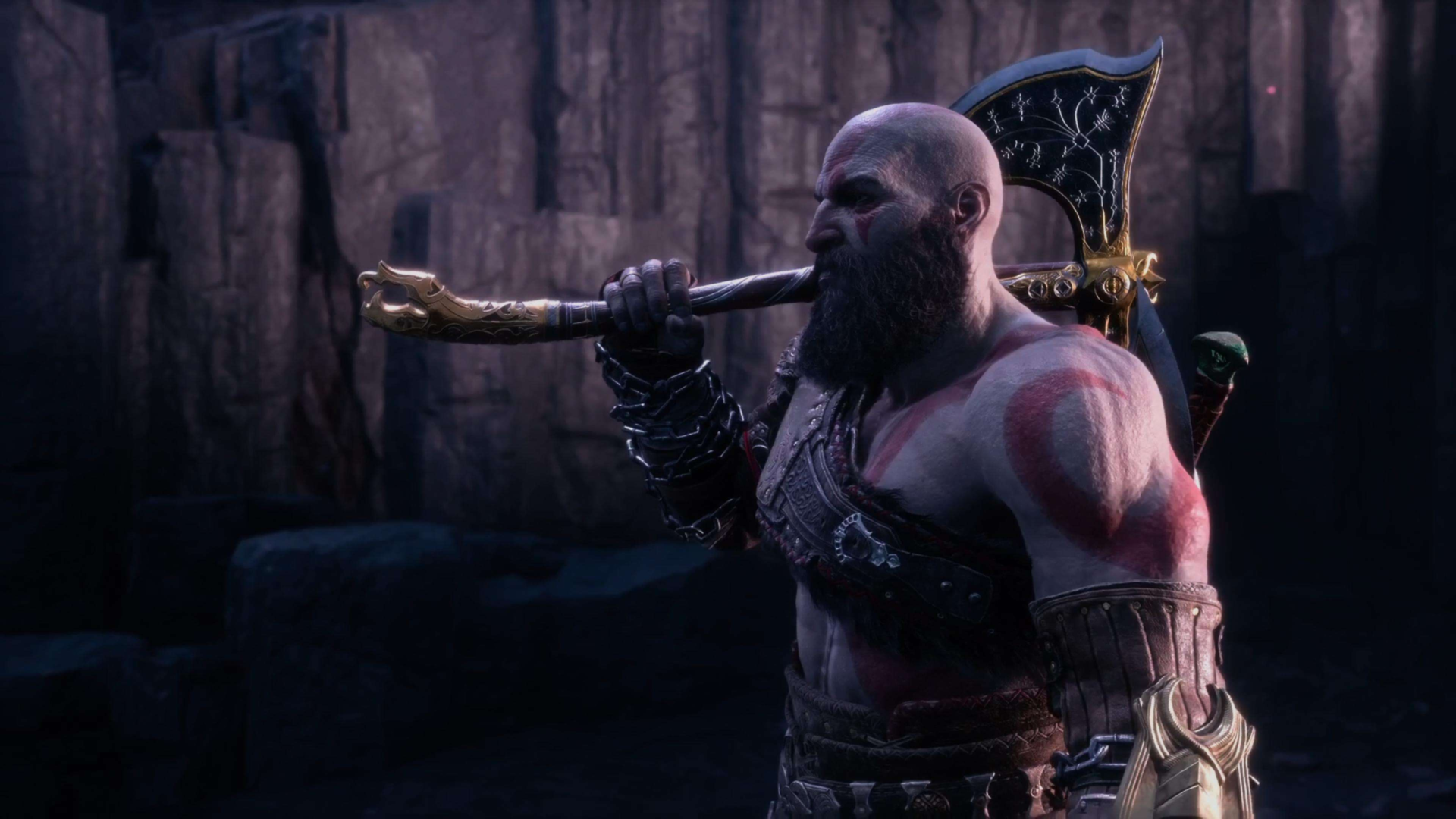
Scoring: 100%
Art: 10/10
Music: 10/10
Story & Writing: 10/10
Gameplay: 10/10
Design: 10/10